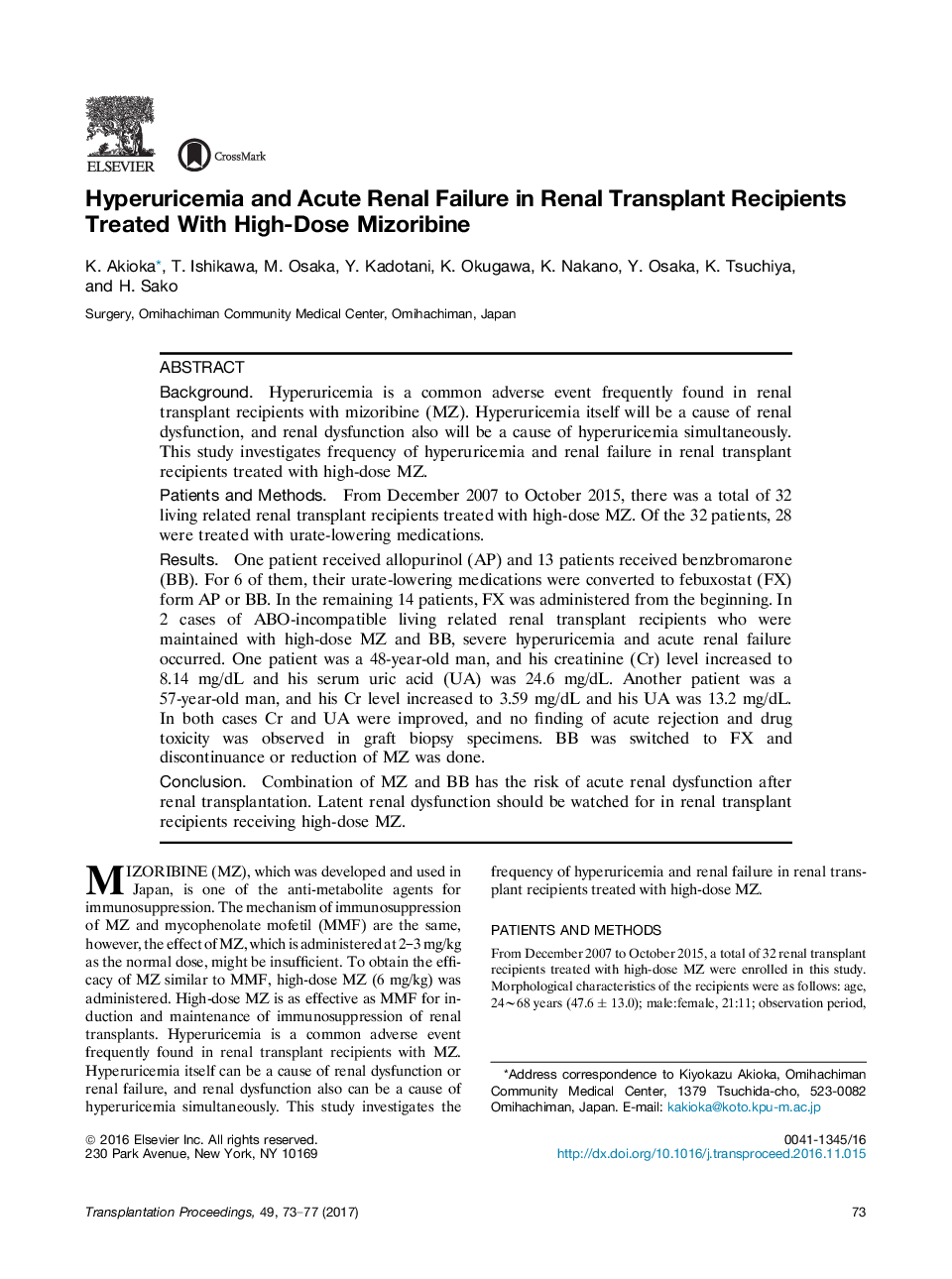| کد مقاله | کد نشریه | سال انتشار | مقاله انگلیسی | نسخه تمام متن |
|---|---|---|---|---|
| 5729292 | 1411679 | 2017 | 5 صفحه PDF | دانلود رایگان |

BackgroundHyperuricemia is a common adverse event frequently found in renal transplant recipients with mizoribine (MZ). Hyperuricemia itself will be a cause of renal dysfunction, and renal dysfunction also will be a cause of hyperuricemia simultaneously. This study investigates frequency of hyperuricemia and renal failure in renal transplant recipients treated with high-dose MZ.Patients and MethodsFrom December 2007 to October 2015, there was a total of 32 living related renal transplant recipients treated with high-dose MZ. Of the 32 patients, 28 were treated with urate-lowering medications.ResultsOne patient received allopurinol (AP) and 13 patients received benzbromarone (BB). For 6 of them, their urate-lowering medications were converted to febuxostat (FX) form AP or BB. In the remaining 14 patients, FX was administered from the beginning. In 2 cases of ABO-incompatible living related renal transplant recipients who were maintained with high-dose MZ and BB, severe hyperuricemia and acute renal failure occurred. One patient was a 48-year-old man, and his creatinine (Cr) level increased to 8.14 mg/dL and his serum uric acid (UA) was 24.6 mg/dL. Another patient was a 57-year-old man, and his Cr level increased to 3.59 mg/dL and his UA was 13.2 mg/dL. In both cases Cr and UA were improved, and no finding of acute rejection and drug toxicity was observed in graft biopsy specimens. BB was switched to FX and discontinuance or reduction of MZ was done.ConclusionCombination of MZ and BB has the risk of acute renal dysfunction after renal transplantation. Latent renal dysfunction should be watched for in renal transplant recipients receiving high-dose MZ.
Journal: Transplantation Proceedings - Volume 49, Issue 1, JanuaryâFebruary 2017, Pages 73-77